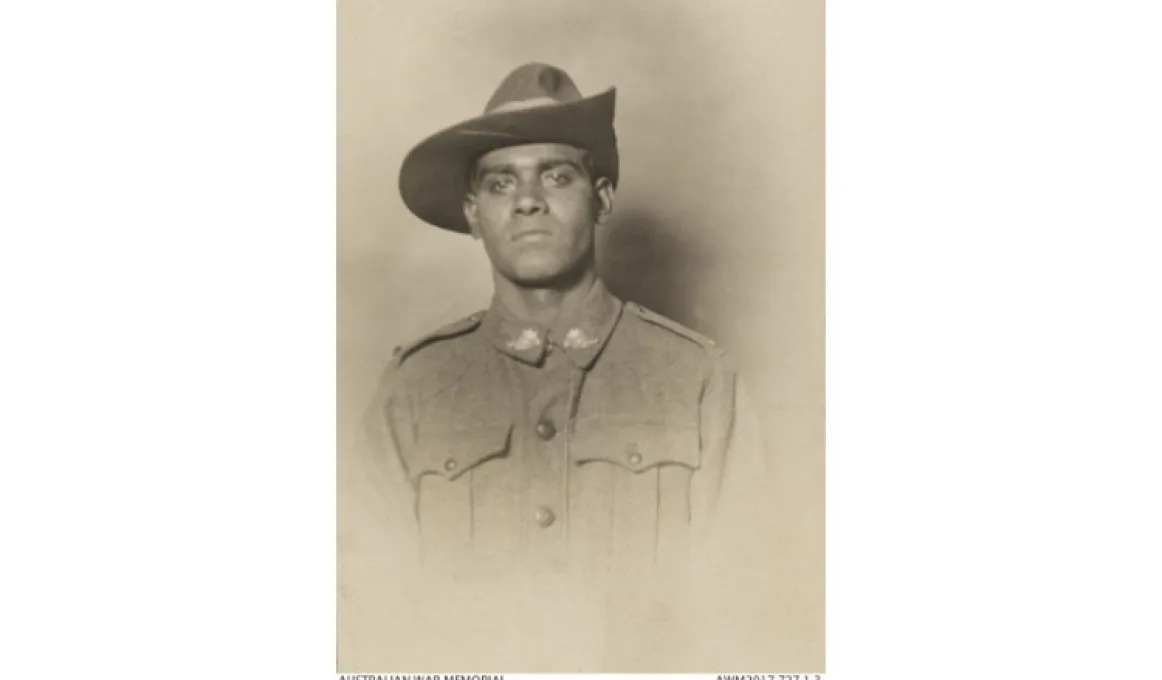Anzac Day: Teaching resource brings Indigenous service stories to life

Private Roland Winzel Carter fought for the Australian Imperial Force in World War 1 and his story is included in a new teaching resource, Stories of Indigenous Service.
On a Monday in early September 1915, the community of Point McLeay Mission (Raukkan) on the banks of Lake Alexandrina in South Australia came together to farewell one of its own.
Amid speeches, gift giving and singing ‘For he’s a jolly good fellow’, Roland Carter bade goodbye to his family and friends. He was the first Ngarrindjeri man from the community to enlist for overseas service in the Australian Imperial Force (AIF).
Leaving his homeland for the foreign shores of Egypt and France, Roland experienced illness and injury during his wartime service, including a gunshot wound to his left shoulder. Roland was taken prisoner by the Germans in April 1917, although the AIF listed him as ‘missing in action’ for some time.
While his family waited anxiously for news, Roland spent time in hospital before being interned at the Halbmondlager prisoner-of-war (POW) camp, south of Berlin.
Most of his fellow detainees were Muslims, and the Germans took the opportunity to study the prisoners. Compared to many other camps in the First World War, the POWs at Halbmondlager were treated relatively well.
After the war, Roland was liberated and sent to England before being repatriated to Australia in June 1919. He returned to the mission on his beloved Ngarrindjeri country, where he and other ex-servicemen built a memorial to honour 16 men from the mission who served in the war.
Tragically, four of them never returned home.
It is estimated that between 1,000 and 1,200 Aboriginal and Torres Strait Islander peoples served in the First World War.
Exact numbers are unknown as discriminatory laws excluded First Australians from naval and army service as ‘not substantially of European origin or descent’, although not all recruiters adhered to the rule. Also at this time, First Australians were not allowed to vote, marry without permission or receive a war service pension.
Stories of Indigenous Service, produced by the Australian Government Department of Veterans’ Affairs (DVA), introduces teachers and students to the service and sacrifice of First Australians in the First and Second World Wars.
Written by education experts with contributions from qualified historians, the book is designed to be used in Literacy and History classrooms in both primary and secondary schools.
The stories in the book highlight the courage and commitment of First Australians at a time when they were not recognised as citizens or traditional owners in their own country. It’s a companion to DVA’s other Indigenous Service school resources.
Find out more
In March, DVA posted a hard copy of the Stories of Indigenous Service teaching resource to Australian primary and secondary schools, as well as ex-service organisations and community groups.
Read free teaching resources online or download a PDF copy from DVA’s Anzac Portal website – Stories of Indigenous Service and Indigenous Service School Resources.